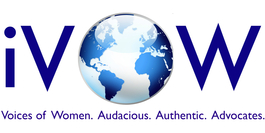Our host, Jenni Prisk, interviews Yamoundow Jagne Joof from The Gambia who knows firsthand the need for women’s full participation in peace and security decision-making. She joined the police force in 1984 to be a “part of the systems or structure that will protect and promote the welfare of [the] vulnerable and less privileged.”
Possibly you’ve never heard of The Gambia. You’ll remember it after you hear the compelling conversation with Yamoundow Jagne Joof who comes from the most peaceful country in the continent of Africa. “Peacemaking is mine to give, not yours to take.”
Listen Here
Excerpts from Interview
- “In late 70s, I became a survivor of sexual and gender-based violence.”
- “Parents would say that it was a waste of time to educate girls.”
- “There was a (dangerous) culture of silence…”
- “FGM (Female Genital Mutilation) has been banned in The Gambia.”
- “We enjoyed an uninterrupted peace in our country…you wouldn’t recognize who is a Christian, who is a Muslim, we intermarry.”
- “Peacemaking is mine to give, not yours to take.”
- “Everywhere you go in The Gambia, everyone is smiling.”
- “America imposes itself on the world, but the people are different – I feel welcome.”
Biography of Yamoundow Jagne Joof
Jagne Joof has been a police officer in The Gambia Police Force since 1984, was its first female head of the Gender and Child Protection Unit, and has served as a U.N. peacekeeper in Liberia and Sudan.
The interview takes place at the Joan B. Kroc School of Peace Studies at the University of San Diego while Jange was in residence as a Women PeaceMaker in the Institute for Peace and Justice (IPJ).
More About The IPJ Women PeaceMakers Program
Since 2003, the Joan B. Kroc Institute for Peace and Justice (IPJ) at the University of San Diego has welcomed four women peacemakers each year from around the world.
The women reside at the University of San Diego Joan B. Kroc School of Peace Studies for two months and share their stories which are documented by four Peace Writers. While the women are in residence, “they have opportunities to exchange ideas and approaches to peacemaking and justice, which helps increase their capacity to participate in conflict resolution and peace building efforts.”




